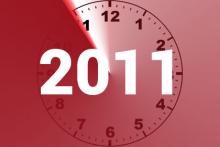FROM OUR ARCHIVES

Editor's Comment, by Pesi Fonua.
One year on from last November's general election that heralded political reform, it is timely to look closely at how Tonga's new government is shaping-up during the first year of its four-year term in office.
For a start, it is unrealistic for the voters to assume that they have elected into power a government that could hit the road running, with a bag full of national policies and projects that might provide employment opportunities and establish overseas markets. After all, the individuals that have been elected by small constituencies are diverse in beliefs and political ambitions, and they are unlikely to become united in those once they enter the House. Obviously, it will take some time for these individuals formulate a coherent national vision.
The new electoral system divided Tonga into 17 small constituencies and the November 2010 General Election, put 17 individuals into parliament.
At the time of the election it appeared that a priority of voters in Tonga's constituencies was for someone to represent their interests in the House. Voters in these constituencies could only choose someone in their own neighbourhood to put into parliament, and could not make their selection nationally from the best men and women that had stepped forward.
The 17 new people's representatives, along with nine nobles' representatives, made up the 26 members of the new parliament. They then nominated and elected a Prime Minister from among themselves.
The Prime Minister, Lord Tu'ivakano, in turn, formed his new government from among the elected members of parliament, and four outside appointees.
Cabinet
The fundamental task of the Tongan parliament is, of course, to make laws, and now the nature of the law making process under the reformed system of government is slowly unraveling itself.
Under the political reform, the King in Council relinquished his executive power to the Cabinet and the Parliament. This meant that the King in Council no longer has the authority to draft Ordinances or to pass Regulations when parliament is not in session.
Initially, there was a public perception that all legislation would now have to follow the process of the House, and go to Public Consultation and a Standing Committee on Legislation, before going back to the House, and finally moving through to Royal consent, before being Gazetted and becoming an enforceable law.
But recently, it has become clear that the authority to draft and pass legislation and regulations, when parliament is not in session, has moved from the King in Council to the Cabinet. The problem now is that some of this legislation has been enforced, and there has been no public consultation, and it has not been endorsed by the House. The House has already closed for this year.
Tongans now find themselves in a situation where Cabinet can enforce legislation even though it has not been endorsed by the House and does not have the Royal Consent.
That was not what many people expected.
Royal Consent
Under the reform the king still has a role in law making, and the Royal Consent is required before a Bill can be Gazetted and became a law.
This is complicated by the fact that under Tonga's new system of government, the king does not have to appoint a Regent when he leaves for overseas, as was the case in the past.
So now, whenever the king is away, any matter that requires the Royal Consent will have to wait for the return of the king.
At this point of time quite a number of pieces of legislation are still awaiting the Royal Consent.
Standing Committees
Meanwhile, the House is increasingly going behind the closed doors of the standing committees to discuss new legislation, rather than debating it in the open air of the House.
Since the new parliamentarians were sworn-in in January, the House has established seven Standing Committees, compared to only two in the previous parliament.
Some of the Bills that were tabled into parliament this year were processed in closed session in committees. What this meant was that when some of these Bills were later presented to the House, they came with the written recommendations or the decisions of the committee, and all the House had to do was to agree or disagree.
The unfortunate situation here is that despite the effort for live public broadcasting of the proceedings of the House, there is very little real debate going on in the House. The work has already been done in closed committee meetings.
This year the listening public had problems not only understanding what the House was talking about, but also were unable to follow parliament because the sound system of the House has had the tendency of going off the air at critical moments of the debate.
Despite the inconvenience for the public, in trying to follow what is going on in Parliament, the members of the seven standing committees get extra pay packets for their meetings, in addition to their parliamentary salaries.
Even when the House is closed to allow time for Standing Committees to meet, the members receive their normal parliamentary salaries, and on top of that their Standing Committee meetings fees.
These are just a few of the issues that we have to look at with regards to the new system of government that was put in place.
One year on, Tonga's move to a "more democratic" form of government is beginning to look more like an elite private club, that cares little for public opinion or proper procedures.



